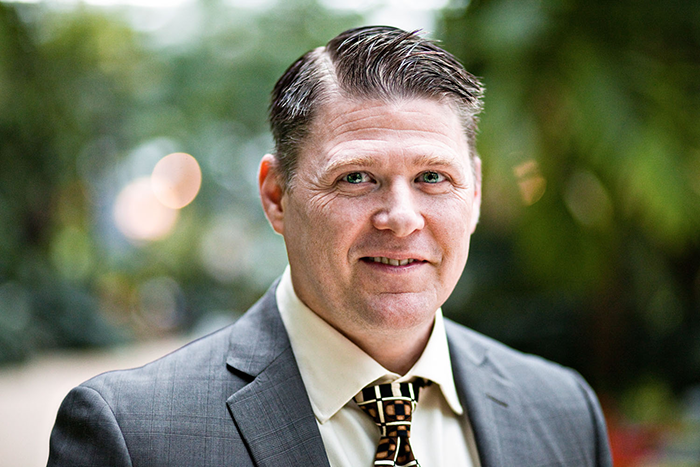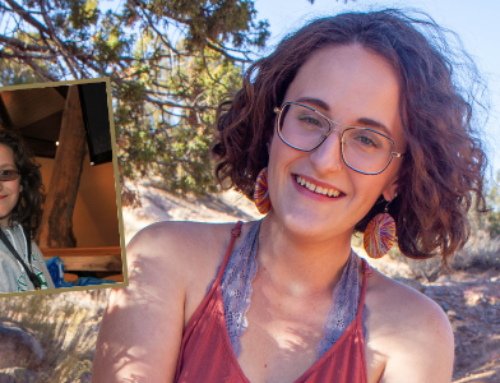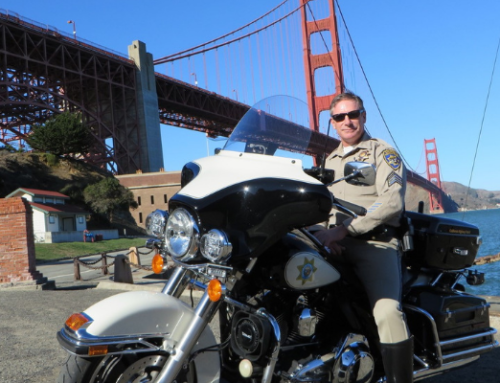The dark hotel room lurked around me; the cold blue and gray carpet oozing the dank sani-odor of disinfectants and air freshener. Hotel rooms are the Rorschachs of the soul, commoditized dwelling units designed as homes away from homes but always failing. What you see in a hotel room is what you bring to the hotel room. I was an interloper granted temporary respite for a fee, and I felt alone. The drapes parted just enough to let me know the sun was still shining; they begged me to rip them open and complete my travel ritual of exposing the room to the world so I did not feel so terribly alone. I did not budge. I sat at the desk still packed. I fiddled with the complimentary pen and pad of paper with the hotel logo. I dawdled. I hemmed. I hawed. I needed to make a phone call. The need was all-consuming. I did not want to make the phone call. I was afraid.
I had finally made a decision to tell my story. To be more precise, I had finally made a decision to share a tiny bit about my story. I am a suicide attempt survivor, or, depending on how technical you want to get; I am a survivor of an interrupted suicide attempt. Once, many years ago, while raging inside a small municipal jail, I tried to kill myself. Before I could make much progress on my fevered plan, four diligent police officers barged into the jail cell and put an end to my end, so to speak. Their suicide prevention efforts turned into a knockdown drag-out brawl where hilarity and tragedy ensued. But I survived. But that was not the story I was ready to tell.
I just wanted to tell somebody, anybody that I, too, was a suicide attempt survivor. Less than 10 people in the entire world knew my secret, and all of them were police officers. For years I believed that my wife, my mom and my dad knew this but would not talk about it. This turns out to be false. The police never discussed my suicide attempt with my family. I assumed, incorrectly, they had. The police decided to be the keepers of my secret. I also decided to be the keeper of my secret. We were co-conspirators in the silently executed plan to keep my past hidden. I was shamed and grateful at the same time. I had made a decision after I left that jail cell that I would discuss my suicide attempt with nobody, ever, under any circumstances.
I buried this part of my life without ceremony. For a few years, I lived with the daily fear that someone would find out. The paranoia was palpable. Sometimes, late at night, I would play Six Degrees of Kevin Bacon about my suicide attempt. I would explore potential discovery points and play connect-the-dots with sources and situations. By the end of it, I would become completely convinced that disclosure was not only possible, IT HAD ALREADY HAPPENED. I would eventually fall asleep convince my secret was out; my protected life was over, and tomorrow would be the day the world knew I was a suicide attempt survivor.
BUT it never happened. The next day, I would go about my business and the secret remained dormant. Over multiple repetitions of this process, I became completely desensitized to the fear. I stopped worrying about it at all. It didn’t cross my mind. The fear gradually receded until I no longer even considered myself a suicide attempt survivor. I had been granted the privilege of complete anonymity. I unconsciously granted myself internal anonymity. It was too easy. Thinking about that night was wrought with pain. Once I had no fear of being discovered, reliving that night served absolutely no function. If something triggered the memory, whether internal or external, I would quickly move away from it the way we instinctively move away from a hot stove or a coughing toddler. This became such an automatic behavior, that, for a span of 8 years, I had no explicit recollections about the attempt.
This was especially ironic given that I worked in crisis intervention and suicide prevention. Every single day I talked to people fighting thoughts of suicide. Every single day, I read articles, worked on protocols or trained other people on how to assess and intervene with someone at risk of suicide. My life was dedicated to helping ‘them.’ And that is exactly how I viewed it. There were those of us who were helping people at risk of suicide and ‘those” people at risk of suicide. In my mind, you were one or the other. You simply could not be both. How the part of me that lived through a suicide attempt woke up is a story for another time. But wake up it did. Not all at once. I don’t know how I would have handled that. I am guessing poorly.
Slowly, over time, my access to this part of my life began to increase. In bits and pieces, like a listless keloid scar, this part of me gradually grew larger and larger until I could no longer ignore it. It began to take up more and more space. As it took up more and more space, I began to feel increasingly incomplete. As this thing grew, as the awareness grew, I felt less and less like myself. I had an imposter living in me, a parasitic worm that squirmed and spun. It wanted out.
I was simply no longer okay with the US and THEM paradigm. I was simply no longer okay being a suicide prevention expert that had a secret suicide attempt. I was no longer okay with the way the people around me talked about those fighting suicide. I was no longer okay with the way I had talked about those fighting suicide. I felt like a fraud, a thief and a coward. I had seen people in the suicide prevention community who had come forward about their suicide attempts. I was humbled and inspired by them. I was, in my own way, a leader in the suicide prevention community and this role I had created was now being diminished by my secret. It needed to come out.
Members of Alcoholics Anonymous often say you are only as sick as your secrets. I was completely and utterly sick of my secret. I was angry that I was afraid. I was afraid of my anger. I was terrified of what would happen if I told. I was terrorized by what would happen to me if I did not tell. I made a decision that at my next presentation, I would tell the audience that I, too, was a suicide attempt survivor.
This decision brought some relief. But there was a new dilemma. I had seen firsthand the impact of professionals disclosing their secret struggle. I had seen it go well. I had seen it go badly. I have worked at Behavioral Health Response (BHR), a crisis agency in St. Louis, MO, since 1998. It is the heart and soul of my professional existence. I did not want my disclosure to harm my company. I would not let my past damage my hard work or the lifesaving efforts of the agency that had nurtured and protected me while I helped others. I needed to talk to my boss and tell her my story. I needed to make sure that telling my story would not damage my agency, my work or my future. I had decided that if my boss had concerns about me telling my story, I would not tell my story. It was that simple, and it was that hard.
The presentation date grew closer and closer. I did absolutely nothing. I waited. I was paralyzed. It was ridiculous. I sat in that hotel room the night before the presentation and debated calling my boss. I sat in the murky dark with the small crack of light providing just enough contrast to make out shapes and cast shadows. I picked up my phone and I called my boss. She answered.
Pat Coleman, the CEO at BHR, answered her phone and her smile came through just as clearly as her voice. I told her I had to tell her something. I told her, in cliffs note form, in just the barest details possible, my story. I told her I wanted to tell my story, but I would not if she thought it would hurt BHR. She was the first person to hear my story. I had no idea what to expect. I feared the worst and hoped for the best. Pat said these exact words to me:
“You cannot hurt BHR by telling your story.”
“You can only make BHR stronger by telling your story.”
“You need to tell your story.”
I did tell my story the next day. I have told my story hundreds of times at this point, to groups both large and small. I am utterly fearless about telling my story. As I reflect back on this event, I realize that I was not feeling unwhole or incomplete. I did not have a part missing. I was not damaged. I was unseen. The complete me was always there but was invisible, unrecognized and unvalued. Just having part of me feeling rejected and shamed stained my whole being. It was intolerable. When I tell my story, I am able to see and be seen. It is like opening those god awful hotel drapes and bringing light into the world. This is why we share our stories. This is why we hear other’s stories. In seeing and being seen we acknowledge to each other that our lives are worth living, that our whole lives matter.







Thank you for telling your story. It’s beautiful, Dr. Andrews.